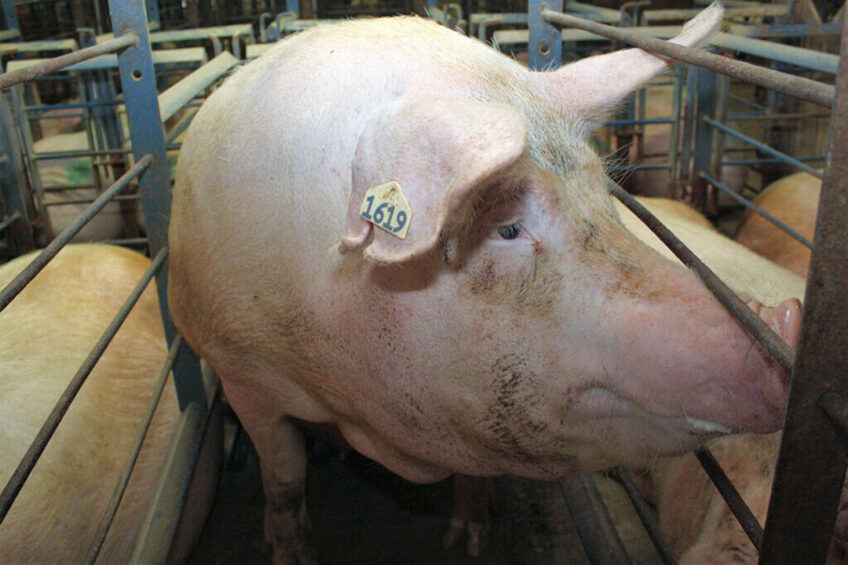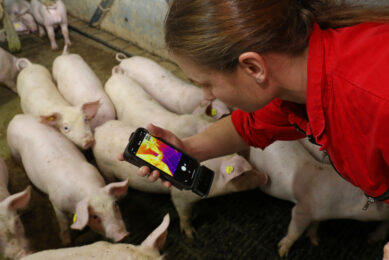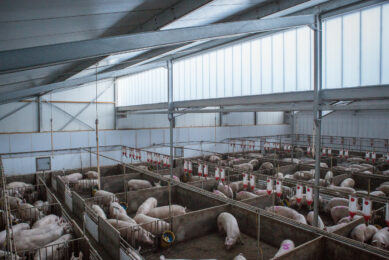Proposition 12: New developments

Since it was passed by voters in California in 2018, Proposition 12, also known as the Farm Animal Confinement Initiative, has been strongly opposed by the US pork industry.
This set of laws, fully implemented in January 2022, require that animals held in buildings in California, such as breeding sows, veal calves and laying hens, ‘be housed in confinement systems that comply with specific standards for freedom of movement, cage-free design and minimum floor space’.
Each breeding sow, for example, must have 24 ft2 of space. Gestation crates are not permissible.
New developments
In March 2022, the US Supreme Court agreed to review Prop 12. On June 13, AFBF and NPPC filed a brief with this Court arguing that Prop 12 violates the US constitution’s Commerce Clause, which restricts states from regulating commerce outside their borders.
US federal government
On June 20, the US federal government stepped in. A brief was filed by the U.S. Solicitor General requesting that Supreme Court strike down the part of Prop 12 that bans the sale of pork in California from hogs in housing systems other than those described in the law. The Solicitor General agrees with the AFBF and NPPC that the law violates the Commerce Clause in the US Constitution. In October, the US Supreme Court will hear arguments relating to this case.
On June 21, an interview was published where NPPC representatives claim that both the Canadian and Mexican pork industries have been highly supportive of the effort to have Prop 12 overturned.
Across entire US
Prop 12 reaches across the entire US. It prohibits any business from knowingly engaging in the sale within the state of California of whole pork meat, whole veal meat and shell/liquid eggs that are derived from pigs, veal calves or poultry that are housed in a manner contrary to Prop 12 housing standards.
Abiding by the same rules
This means that if farmers and companies anywhere in the US wish to continue supplying pork to California, they must abide by the same rules that apply to their counterparts in California.
There are few very pork farms or pork product makers in California. The state represents a significant portion of the US pork market – about 15%.
Tyson and Hormel
2 of the largest US pork companies, Tyson Foods and Hormel, have stated they will comply with Prop 12. In October 2020, Hormel stated that ‘while it is still awaiting final clarity on specific details and rules, the company is preparing to fully comply when the law goes into effect on January 1, 2022.’
Contesting the law
The North American Meat Institute has challenged Prop 12, asserting that over half of US state governments oppose the ability of any state to apply its laws to other states. The Institute asked the US Supreme Court to review the legislation, but in June 2021, the Court declined to do so.
However, in March 2022, the US Supreme Court reversed this decision.
Separate lawsuit by NPPC
Meanwhile, the National Pork Producers Council (NPPC), in collaboration with the American Farm Bureau Federation (AFBF), launched a separate lawsuit against the state of California. The NPPC stated that “the burden of complying with Prop 12 – and its harmful ramifications – will be felt by hog farmers across the country. Meanwhile, Prop 12 will dramatically reduce the supply of pork to Californians, driving up prices for consumers.”











